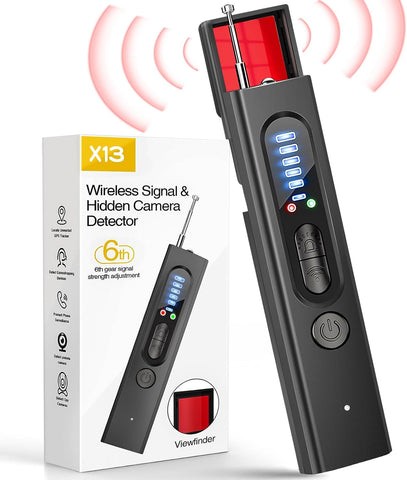As a content creator for autelfrance.com and an auto repair expert, I understand the importance of vehicle diagnostics and the tools we use to access them. If you’re considering purchasing a vehicle from CarMax, you might be wondering about accessing your car’s onboard diagnostics system. A common question that arises is, does CarMax let you attach an OBDII device? This article will delve into CarMax’s policies, your rights as a vehicle owner, and what you need to know about using OBDII devices with CarMax vehicles.
Understanding your vehicle’s health is crucial, and the OBDII port provides a direct line to your car’s computer. Whether you’re a seasoned DIY mechanic or a new car owner, knowing whether you can freely use an OBDII device is essential. Let’s explore CarMax’s stance and the broader implications for vehicle owners.
CarMax’s Stance on OBDII Device Usage
CarMax, as a reputable used car retailer, generally operates under policies that respect customer rights and industry standards. When it comes to attaching an OBDII device to a vehicle purchased from them, CarMax does not explicitly prohibit it, nor would they have grounds to do so. Once you legally own a vehicle, you have the right to access its diagnostic port for personal use.
However, it’s important to distinguish between using an OBDII device for diagnostics and the separate issue of GPS tracking, which is sometimes linked to the OBDII port due to ease of access. While CarMax officially states they do not install GPS tracking devices on vehicles they sell, the question of OBDII device usage is more about your access as the owner to your car’s data.
In essence, CarMax implicitly allows you to attach an OBDII device for diagnostic purposes once you own the vehicle. This is in line with general vehicle ownership rights and practices within the automotive industry.
Why Would You Want to Use an OBDII Device?
Understanding why car owners use OBDII devices helps clarify the relevance of this question. OBDII devices serve multiple purposes, primarily related to vehicle health and data access:
- Diagnostic Checks: The most common use is to read diagnostic trouble codes (DTCs) when the check engine light or other warning lights illuminate. This allows car owners to understand potential issues before seeking professional repair.
- Performance Monitoring: Many OBDII devices can monitor real-time vehicle parameters such as engine temperature, speed, RPM, and fuel efficiency. This is useful for performance enthusiasts and those wanting to keep a close eye on their car’s operation.
- Vehicle Tracking and Telematics: Some OBDII devices are designed for GPS tracking, fleet management, or insurance telematics. These devices can transmit vehicle location and driving behavior data.
- Emissions Testing: OBDII data is crucial for emissions testing in many regions, ensuring vehicles meet environmental standards.
- DIY Repairs and Maintenance: For those who prefer to perform their own car maintenance and repairs, OBDII scanners are invaluable tools for identifying problems and verifying repairs.
Given these uses, the ability to freely use an OBDII device is a significant benefit for vehicle owners. It empowers you to understand your car better and make informed decisions about its care.
Potential Concerns: GPS Trackers and OBDII Ports
While CarMax states they don’t install GPS trackers, the original article raises valid points about the potential presence of leftover devices from previous owners or less scrupulous dealerships. The OBDII port is a convenient location for installing covert GPS trackers because it provides power and is easily accessible.
 Secretly Track Car
Secretly Track Car
Therefore, even though CarMax likely won’t prevent you from using your own OBDII device, it’s wise to be aware of the possibility of pre-existing devices connected to this port. Here’s why vigilance is important:
- Privacy Concerns: Undisclosed GPS trackers can monitor your location and driving habits without your consent, raising serious privacy issues.
- Data Security: Some tracking devices can potentially access and transmit other vehicle data, posing security risks.
- Battery Drain: Poorly installed or malfunctioning OBDII devices can drain your car battery.
- Unauthorized Monitoring: In some cases, dealerships or previous owners might use trackers for purposes beyond legitimate repossession, such as unauthorized surveillance.
Where to Check for Hidden Devices, Including OBDII Trackers
Whether you’re concerned about leftover GPS trackers or simply want peace of mind, inspecting your CarMax vehicle for hidden devices is a good practice. Here are key locations to check, including around the OBDII port:
- OBDII Port Area: While checking if you can attach your own device, look closely at the OBDII port itself. Are there any additional devices already plugged in? Are there any wires leading away from the port that seem out of place? The OBDII port is typically located under the dashboard on the driver’s side.
- Under the Dashboard: Extend your inspection beyond just the OBDII port. Look under the entire dashboard area, checking for any boxes, wires, or devices that don’t seem to belong.
- Under Seats: Check under both the front and rear seats. Trackers can be easily hidden in these less visible locations.
- Inside the Dashboard: While more involved, checking behind the dashboard can reveal hidden devices. This might require some disassembly, so proceed cautiously or consult a professional if you’re unsure.
- Under the Car: Inspect the undercarriage, frame, bumpers, and wheel wells. Magnetic trackers can be attached in these areas.
- Under the Hood: Examine the engine bay, particularly around the battery and fuse box, for any suspicious devices.
Using a GPS bug detector can also be a proactive step if you have concerns. These detectors can identify hidden GPS trackers more effectively than a visual inspection alone.
 Best GPS Bug Detector
Best GPS Bug Detector
Car Dealer Practices and Customer Privacy
Understanding car dealer practices regarding GPS tracking provides context. As the original article mentions, CarMax distinguishes itself by not using GPS trackers for repossession, unlike some “buy here, pay here” dealerships that heavily rely on them.
This difference is significant for customer privacy. While GPS tracking can help dealerships manage risk and recover vehicles in case of default, it also raises privacy concerns. Customers may not be comfortable knowing their location is constantly monitored.
CarMax’s policy aligns better with customer privacy expectations. By not installing trackers, they avoid potential misuse of location data and build trust with their customers. This approach contrasts with dealerships that use GPS tracking extensively and may not always be transparent about it.
What to Do If You Find a Suspicious Device
If you discover a device that you suspect is a GPS tracker or any other unauthorized device on your CarMax vehicle, consider these steps:
- Document Everything: Take photos of the device, its location, and any connections. Note the date and time of your discovery.
- Contact CarMax: Inform CarMax about your finding. Give them the opportunity to investigate and explain the device. They may have information about its purpose or be able to remove it.
- Seek Professional Advice: Consult with an independent mechanic or an automotive electronics specialist. They can help identify the device and safely remove it if necessary.
- Consider Legal Options: If you believe the device was installed without your consent and is an invasion of privacy, consider consulting with a legal professional to understand your rights and potential legal actions.
Conclusion: OBDII Access and Peace of Mind
In conclusion, CarMax generally allows you to attach an OBDII device to your vehicle for diagnostic and personal use once you are the owner. This aligns with standard vehicle ownership rights and the utility of OBDII devices for modern car owners.
However, it’s prudent to be aware of the potential for pre-existing devices, especially GPS trackers, that might be connected to the OBDII port or hidden elsewhere in the vehicle. Conducting a thorough inspection, potentially using a bug detector, can provide peace of mind.
By understanding CarMax’s policies, your rights to access your vehicle’s diagnostics, and being proactive about checking for unwanted devices, you can ensure a positive ownership experience and maintain your vehicle’s privacy and security.
Frequently Asked Questions about OBDII Devices and CarMax
Can I use my own OBDII scanner on a car I purchased from CarMax?
Yes, once you purchase a car from CarMax, you are generally free to use your own OBDII scanner for diagnostics and monitoring. CarMax does not restrict your access to the OBDII port for personal use.
Is it legal for CarMax or any dealer to install a GPS tracker without my knowledge?
Generally, installing a GPS tracker without your knowledge or consent can be illegal, particularly if it’s done after you have purchased the vehicle and without proper disclosure. Laws vary by state, but transparency and consent are crucial aspects of vehicle tracking legality.
Will attaching an OBDII device void my CarMax warranty?
Using a standard OBDII scanner for diagnostics should not void your CarMax warranty. Warranties are typically voided by modifications or misuse that directly cause damage. Simply reading diagnostic data through the OBDII port is not considered a modification that would void a warranty. However, if you are unsure, it’s always best to check the specific terms of your warranty or consult with CarMax.
What types of OBDII devices are safe to use?
Reputable OBDII scanners and code readers from known brands are generally safe to use. Avoid using cheap, uncertified devices that could potentially cause electrical issues or data security vulnerabilities. When in doubt, read reviews and choose devices from trusted manufacturers.
Where can I learn more about OBDII codes and vehicle diagnostics?
There are numerous online resources, automotive websites, and repair manuals that provide information about OBDII codes and vehicle diagnostics. Websites like the National Institute for Automotive Service Excellence (ASE) and reputable automotive forums can be valuable resources for learning more about vehicle diagnostics. You can also consult resources like https://www.debt.org/faqs/repossession/ for related information on vehicle ownership and rights.
